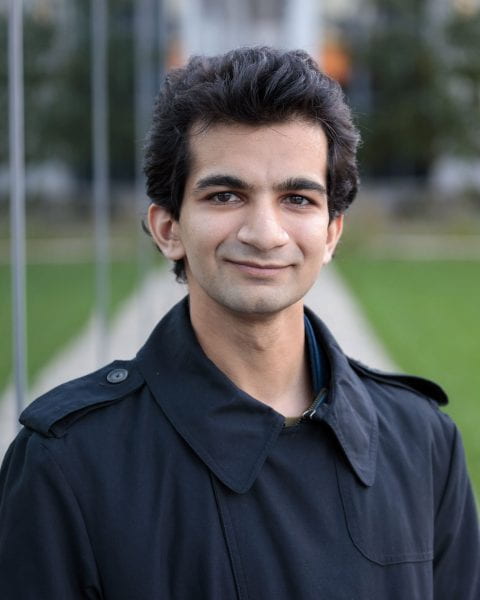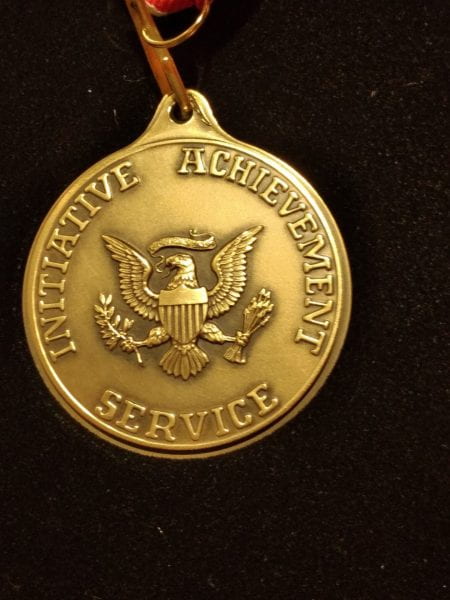NEIL SHETH
MD-PhD CANDIDATE

- Email: neilsheth@uchicago.edu
- Twitter: @neiluchicago
- Year: MD-PhD 7th Year (Earned PhD in 3 years, currently in 4th and final year of medical school, graduating in 2025)
- Institution: University of Chicago Pritzker School of Medicine, Chicago, IL
- Recent Publication in Nature Urban Sustainability: “Measuring health and human development in cities and neighborhoods in the United States.” (https://doi.org/10.1038/s42949-023-00088-y)
- Awards:
- Metrolab Network and Government Technology Magazine Innovation of the Month (https://bit.ly/3H9wOkJ)
- US Congressional Gold Medal Award
- President’s Volunteer Gold Service Award from President Barack Obama
Clinical and research interests:
- Current Research interests:
- PhD Thesis title: “The Community Human Development Index (CHDI): A Novel Metric for Precision Public Health”
- Summary: I obtained a Doctorate in Biomedical Informatics and Precision Public Health to address Health Equity and Health Risk Management across geographic scales. I developed a new framework and metric to measure health at the community level for targeted, patient-centered interventions that improve both life expectancy and quality of life over time.
Hobbies:
- I enjoy spending time with my family, friends, and dog, mentoring students, international travel, swimming/water sports, running/ trekking, reading/ podcasts, singing, watching movies and TV shows, and cooking international cuisine
Brief Summary
I grew up in the metropolitan Chicago area and have stayed here to pursue my undergraduate degree, PhD and medical degree.
Using a complex systems approach, I designed a new interdisciplinary heath framework and created a novel metric called the Community Human Development Index (CHDI) to understand and address health disparities in over 70,000 neighborhoods and communities across the United States. The CHDI is designed to aid targeted interventions that improve life expectancy and quality of life over time through comparative analysis and implementation of best practices. My work is designed to optimize patient-centric care through the use of Descriptive Analytics (Multi-dimensional Historical Data Mining), Predictive Analytics (Root Cause and Risk Factor Analysis to forecast outcomes), and Prescriptive Analytics (choosing the optimal course of action) for both Global Health Management and Precision Public Health Management. This is aligned with the localization of the United Nations’ Health Equity and Sustainability Goals. I won the Metrolab Network and Government Technology Magazine Innovation of the Month Award, as well as the US Congressional Gold Medal Award, for my work on COVID-19’s impact on neighborhoods across the US.
I am passionate about mentorship and outreach, and helping students of diverse backgrounds achieve their dreams of becoming amazing physician-scientists.
Detailed Description:
Suraj (Neil) Sheth is an MD-PhD Candidate (MSTP) at the Pritzker School of Medicine, and a Doctoral Fellow in Biomedical Informatics, Global Health and Precision Medicine at the Mansueto Institute for Urban Innovation at the University of Chicago. He is a student in the Ecology and Evolution Department in the Interdisciplinary Scientist Training Program. Neil is the recipient of the Volunteer Gold Service Award from President Barack Obama, and recently received the US Congressional Award Gold Medal for his public service and exploration of new environments over the last decade, which culminated in his ground-breaking work in the areas of Healthcare, Education and Sustainability. The award recognized his initiative, service, and achievements.




As a mathematical biologist and data scientist studying complex systems, Neil’s interdisciplinary research in biomedical informatics utilizes large datasets to understand the impact of pandemics such as COVID-19 on local communities, and leverages population health insights for precision medicine interventions using participatory mechanisms, predictive analytics and preventive frameworks. To address the need to gain a better understanding of heterogeneities in human development within cities and across communities, Neil developed the Community Human Development Index (CHDI), a multidimensional measure to assess human achievement across scales at the state, county, city, and neighborhood levels. His work on the disparate impacts of COVID-19 on different communities within urban areas received The MetroLab Network and GovTech Magazine’s Innovation of the Month Award, and he was interviewed and featured on ABC News.
In 2017, he spent a year traveling around Italy and China researching the impact of smoking on teens, and worked at the World Health Organization in Beijing under Dr. Bernhard Schwartländer (currently the Chef de Cabinet at the WHO), in conjunction with the Mayo Clinic. During this time, he created the Global Health Management Model, which was published in the IEEE (Institute of Electrical and Electronics Engineers).
Neil, who scored in the 99th percentile on the MCAT (Medical Common Admission Test), has served as the President of the Pritzker Journal Club and the Pritzker Business in Medicine Interest Group. He is a National Merit Scholar and a National AP (Advanced Placement) Scholar. Upon graduating high school, he was selected as a member of the All-State Academic Team by the Chicago Tribune as the top 10 high school graduates in Illinois for the year. At Loyola University, as an undergraduate, he was the only student in the school’s history to have received all 6 major awards: Ignatian Merit Award for All Around Excellence, Carbon Fellowship for Genetics Research, Ricci Award for multi-national comparative research, the Provost Award, the Maroon and Gold Award, and Biology Gold Medal Award. Neil speaks conversational French, Italian, Mandarin Chinese, Hindi, Tamil and Gujarati. He enjoys water sports, reading books, watching movies, traveling, spending time with friends and family, and mentoring students.
Research focus:
Human development is a complex process involving interactions between individuals and their socioeconomic, biological and physical environments throughout their life. The Human Development Index (HDI), a national average utilized by the United Nations, is a summary measure of achievement in key dimensions of human development at a national level: a long and healthy life, being knowledgeable and having a decent standard of living. But national measures can obscure substantial disparities between states, cities and smaller neighborhoods in large urban areas. To address the need to gain a better understanding of the heterogeneities in human development within cities and across communities, Neil developed the Community Human Development Index (CHDI) a multidimensional measure to assess human achievement across scales at the state, county, city, and neighborhood levels.
Neil’s work is focused on the meaningful attainment of international, national, state, city and county-wide sustainable development goals. His data-driven framework, based on root-cause analysis, can be utilized around the globe for the rapid adoption and effective implementation of best practices. This can aid community development through local empowerment. Neil’s work is aimed at helping the World Bank, United Nations, and the World Economic Forum achieve the UN’s Agenda 2030 for Global Sustainable Development. His research helps advance the localization of the United Nations Sustainable Development Goals (UNSDGs) to create inclusive and equitable societies.
CHDI in Medicine:
The CHDI can serve as a tool for Precision Medicine and advancing UNSDG 3 (Good Health and Wellbeing), as well as the World Economic Forum’s goal of improving Global Health and Healthcare. The long-term goal of the NIH’s Precision Medicine Initiative is to integrate precision medicine approaches into all areas of healthcare systems. Previous studies have shown that the location of a patient’s residence within a city can be predictive of their long term health outcomes. As a result, precision medicine approaches often analyze patients’ socioeconomic backgrounds, as well as their genetic backgrounds and biological baselines.
The CHDI can be used as an indicator to predict health outcomes, and as a tool to better target public health efforts within large populations to study, predict and prevent health risks, as well as reduce the health outcome disparities between neighborhoods. The CHDI can be combined with health datasets, such as those produced by the All of Us Research Program, to develop insights about the interplay of genetic background, socioeconomic background, and chronic disease. Additionally, it can be integrated into patient Health Dashboards to give a broader context to care, allowing physicians to develop treatment plans and timely interventions that are most effective to a patient’s specific needs.
Links to News Articles:
- ABC News: https://abc7.ws/2Xn8FAn
- MetroLab Network and GovTech Magazine’s “Innovation of the Month Interview”: https://bit.ly/3icsPXb
- Politico: https://politi.co/3cPokiu
- Yahoo News: https://yhoo.it/3e53Ja2
- Original Mansueto Blog Post: https://bit.ly/2zfjUmv
- Facebook: https://www.facebook.com/neil.sheth.773
- Twitter: @neiluchicago
Please reach out:
- Facebook: https://www.facebook.com/neil.sheth.773
- Twitter: @neiluchicago
- Email: neilsheth@uchicago.edu

